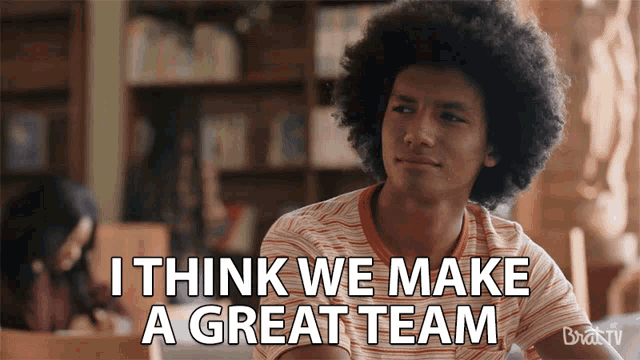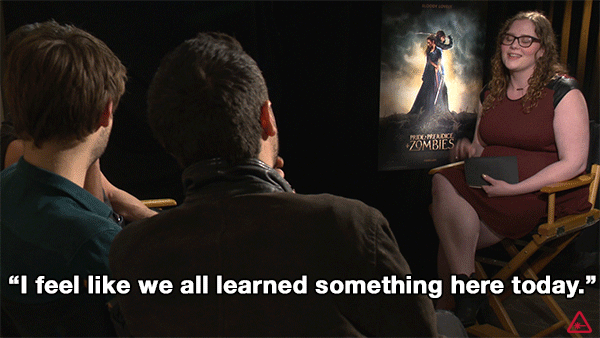One of the most valuable things we can give our student employees are professional development opportunities to help them transition from their work with us to their future careers.
Developing students professionally is integral to our commitment to career development. It’s our duty to prepare students for working in not only our spaces but also any future spaces of employment. And beyond that, it’s simply rewarding to be able to help shape a student's professional development!
I help supervise a team of 15 peer educators, and the professional development topics I’m about to share have really helped each of them grow real-time.
9 Ideas
1. StrengthsFinder
StrengthsFinder is a great way for students to understand what they do best. Or as the company itself puts it, the StrengthsFinder test allows participants to see how they are “uniquely powerful.”
We’ve had great success with our peer educators and StrengthsFinder, finding it well worth the price tag. By knowing their strengths, our students have been able to better understand and articulate how they and each of their peers work best within the team. They’ve also said that it’s helped them perform well in job interviews!

Beyond simply having students take the inventory, I recommend holding a staff meeting wherein you discuss your team’s results. To help facilitate your discussion, check out this helpful activities workbook. You can lead this discussion on your own or find out if someone on your campus, such as a career or academic advisor, is certified in StrengthsFinder to invite in for a facilitated workshop.
2. How to Get a Job
iGen students are particularly focused on how their college achievements will help them attain employment post-graduation. So, to support your student team, consider hosting a speaker or workshop session led by career services professionals.
You can ask your career services colleagues to speak about services available on campus, including internship or employment fairs, cover letter and resume writing workshops; or how to succeed on phone and in-person interviews.
3. Working Professionally
Employment with your team may be many of your students’ first job in an office setting. Help them succeed in your space and beyond by offering a professional development training on soft skills that they may not have be challenged to develop before.
Topics can include:
- How to answer an office phone and transfer a call
- How to use a printer or fax machine
- What to wear to work
- How to greet guests as they enter the space
- How to manage up
- Writing work-appropriate emails
- Cell phone etiquette in the office
You can also teach students how to work professionally while remote. Talk about how to set a workspace and schedule at home, maintain appropriate boundaries, and communicate effectively via video conferencing.
4. Unconscious Bias
For many students, a training session on unconscious biases could be their first exposure to how hidden beliefs shape our reactions to others.

Connect with your campus’s diversity and inclusion office to see if they offer a workshop on recognizing and combatting unconscious biases. Alternatively, consider asking students to take Harvard’s implicit bias test and reflect upon their results.
Preparing our students to recognize biases will help them make their workplaces more inclusive in the future and teach them to be more welcoming in the present.
5. Diversity and Inclusion
Diversity and inclusion training can cover being an inclusive team member, the implications of privilege, how to intervene with a prejudiced action, or how to be an activist for equity — just to name a few possibilities.
I recommend reaching out to experts on your campus to facilitate trainings on these sensitive, complex topics. Your diversity and inclusion office might have a recommendation for someone who can speak with your students.
If your campus does not have such an office, consider seeing what is available in your community or checking out online resources. I recommend NASPA’S Equity, Inclusion and Social Justice website as a great starting point.
6. Eating Disorder Awareness
National Eating Disorder Awareness Week takes place annually during the last week of February. Consider hosting a size-inclusive, anti-diet educator to talk with your student staff about the myths that surround eating disorders and how to challenge them, or about the harm of diet culture.
If your campus has a student health center or medical clinic, reach out to see if they have an educator certified in Health at Every Size who can lead a talk on what eating disorders look like, how to help a friend, or how to practice intuitive eating.
Although this may seem more like a personal development topic, it’s worth including in the interest of developing students who can recognize harmful diet talk and advocate for workspaces that eliminate it — which better serves people of different body sizes, including those who may face fat-shaming or harmful weight bias.
This topic is especially important for my wellness and prevention peer educators, as many will go on to work in health care. For them, creating workspaces that are free of diet myths is directly relevant to their professional lives.
7. Financial Wellbeing
Financial well-being is a key component of wellness that is often overlooked. Many students have not yet had to manage their own finances, so it’s important that they have some knowledge of personal finance in order to be able to support themselves in the future.
Consider hosting an expert from the financial aid office to talk about how to manage student loans after graduation, how to build a monthly budget, or how to save for retirement. Your students, whose families may have been impacted greatly by the 2008 recession and have now lived through the largest economic downturn since the great depression, will really value gaining this financial knowledge.
8. Suicide Prevention Training
Many people do not have the skills nor the confidence to appropriately intervene if and when someone they know is considering harming themselves. So, it might be valuable for your staff to attend suicide prevention training.
Connect with your campus’s counseling center to see if any counselors are trained in presenting this kind of training. It’s especially critical to have a professional counselor lead this topic as it can be triggering and upsetting for some students. Be sure to let students know this training is coming up and give them a safe way to opt out.
Caring for others, including those in your workplaces, is essential. While this topic may feel personal, being a responsible citizen is vital to being a good employee.
9. Mindfulness
Mindfulness and meditation are among the best ways to reduce stress. They’re also valuable skills for students in a generation that struggles greatly with anxiety and depression.
You might connect with your counseling center or health promotion staff to see if they offer a mindfulness or meditation curriculum. You can host them for a staff meeting or professional development day… or even consider doing a short mindfulness activity at the start of every staff meeting. Check out this guide for a great start on helping students with mindfulness.
Considering mindfulness as professional development is key to helping students reduce stress and be able to cope better with the stressors of a full-time job.

When you make a commitment to helping students professionally develop, you encourage students to learn more about themselves and to be the best professionals they can be.
What professional development training sessions have you loved offering your student staff? How have you adapted that to virtual training? We’d love to learn your ideas. Connect with us on Twitter @themoderncampus.






